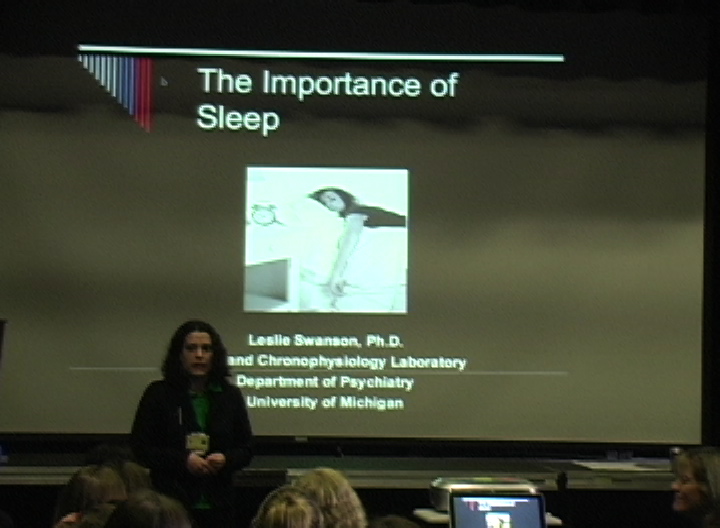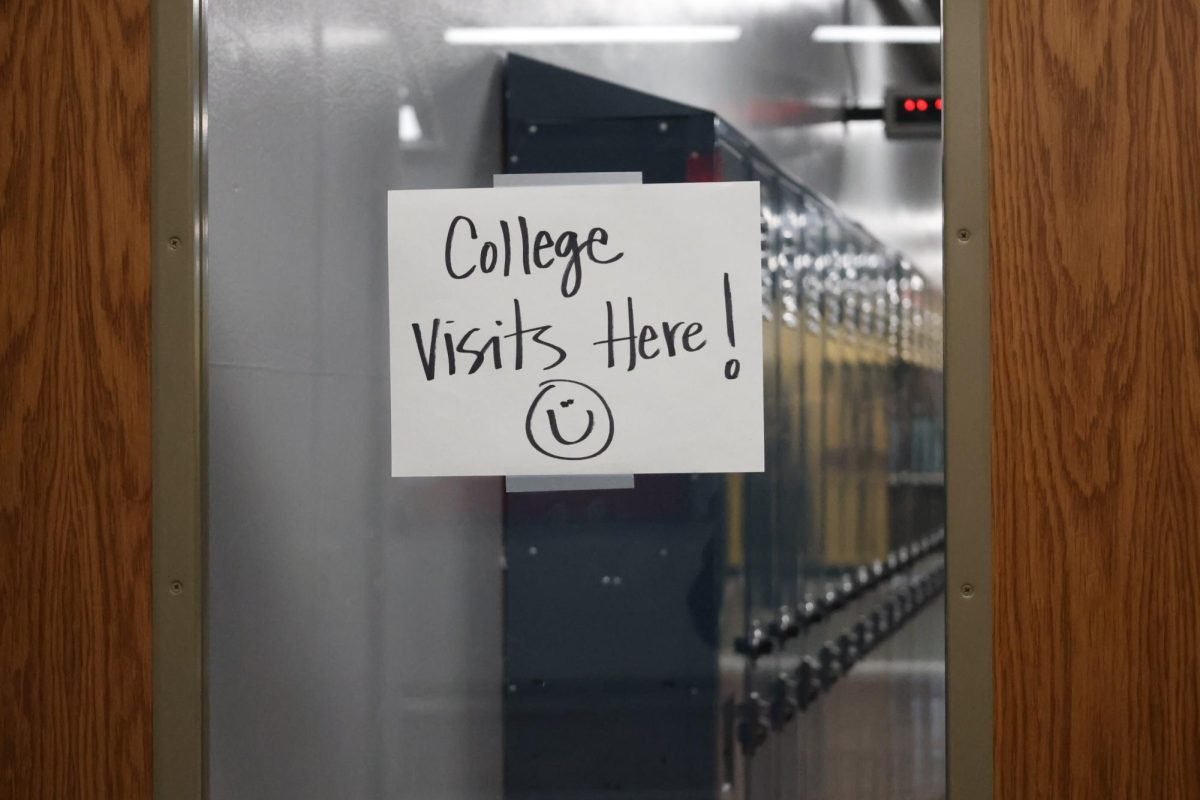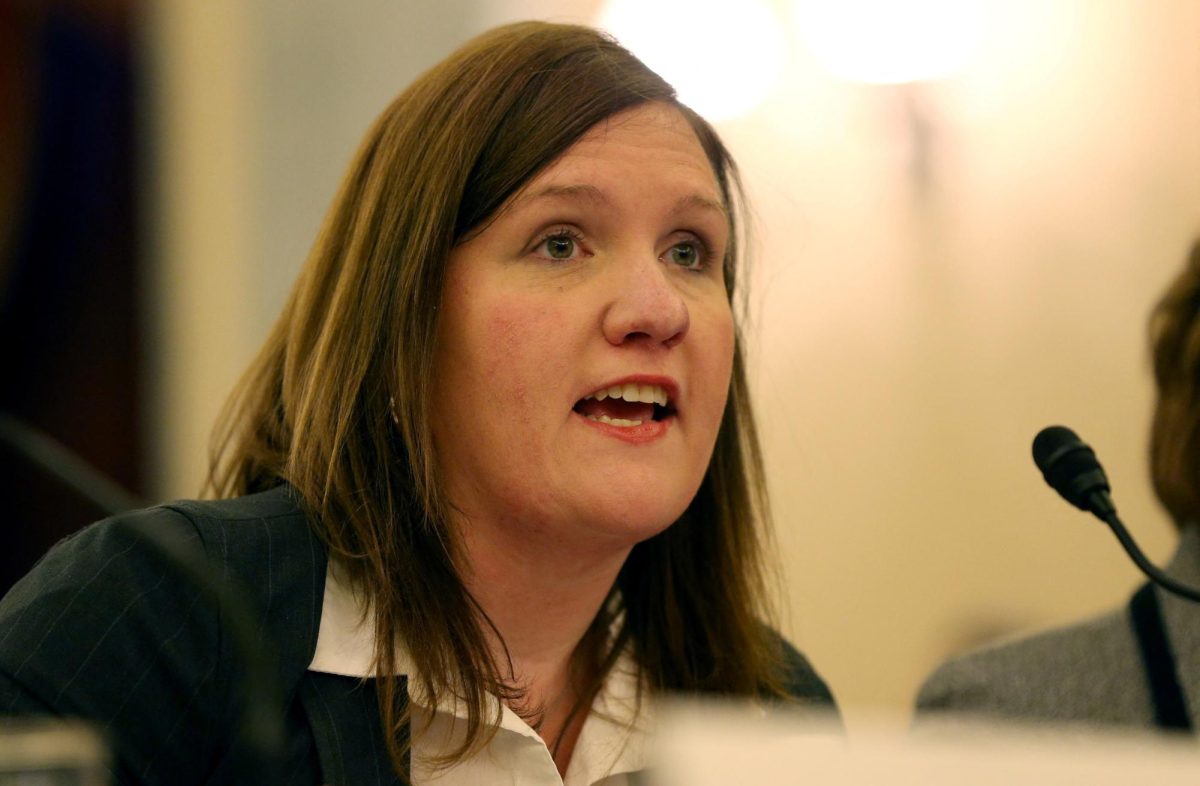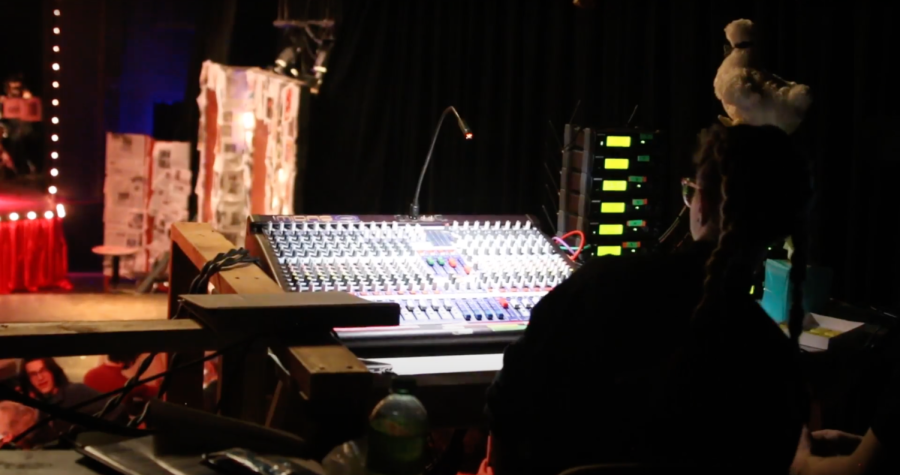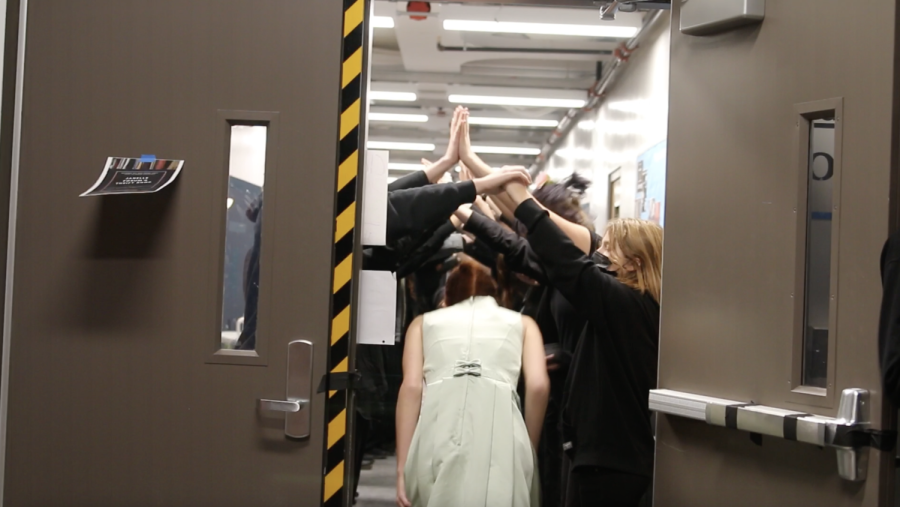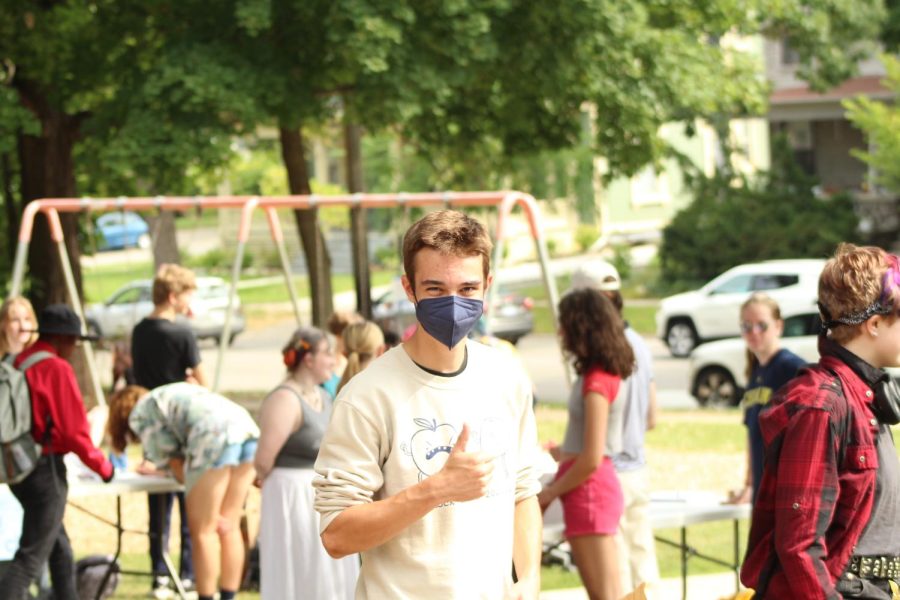Doctor Leslie Swanson, who works at the Department of Psychiatry at the University of Michigan, presented the first lecture in the series focusing on depression organized by the Depression Awareness Group. Showcasing the correlation between depression and sleep deprivation, the lecture aimed to explain why teenagers get less sleep and try to get them to sleep more.
Sleep deprivation present other risks to students besides depression: bad grades and automobile accidents to state a few.
Young adults with poor sleep are four times as likely to develop depression. 42% of young adults who go to bed at midnight will develop depression, and a third will have suicidal thoughts. 21% of teens who get less than seven hours of sleep are likely to attempt suicide.
“A” students get an average of 15 minutes more sleep than “B” students. “C” students sleep 11 minutes less, and “D” students stay up 10 minutes more. The less you sleep, no matter how insignificant, will negatively affect your grades.
Sleep supports brain functions such as regulating emotions, creative thought, coping with problems, and memory. Work quality suffers from less sleep, along with focusing.
But teenagers are not at fault for getting an unhealthily small amount of sleep. Our circadian clock has been set to “Rome Time:” we want to go to bed later and wake up later. However, between early wake-up times set by high school, extreme sleeping in on the weekends (which throws off your circadian clock when you to school Monday) and technology that keeps teens up at night, high schoolers are forced to get less than the nine hours of sleep that they require.
Sleep loss is cumulative: cramming a few more hours of sleep in on the weekends will not make up for a large sleep debt.
Here Dr. Swanson presents ways teenagers can get more sleep.
[quicktime]http://the-communicator.org/wp-content/uploads/2010/04/Sleep-Lecture.mov[/quicktime]
Each lecture is part of a theme the Depression Awareness Group focuses on each month. Their meetings, display board, and organized lecture all focused on sleep. This month the focus is on drugs on alcohol, and May will focus on exercise.
If you are interested in joining the Depression Awareness Group, meetings usually take place Tuesdays in Bodley Hall.



